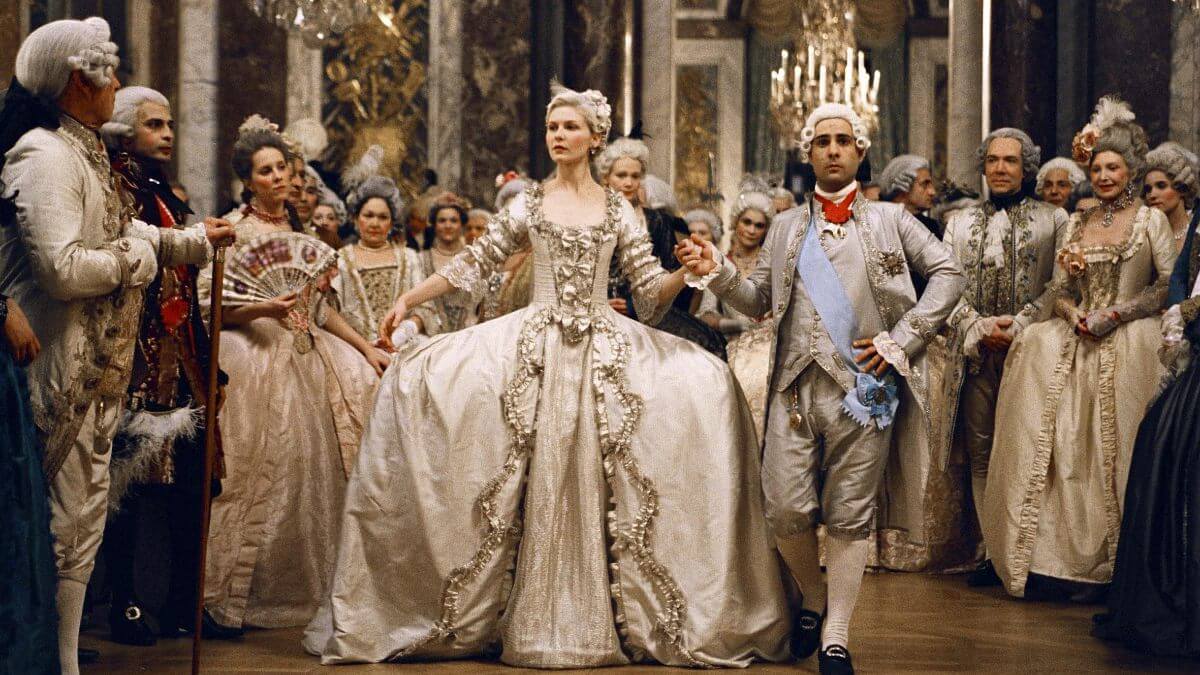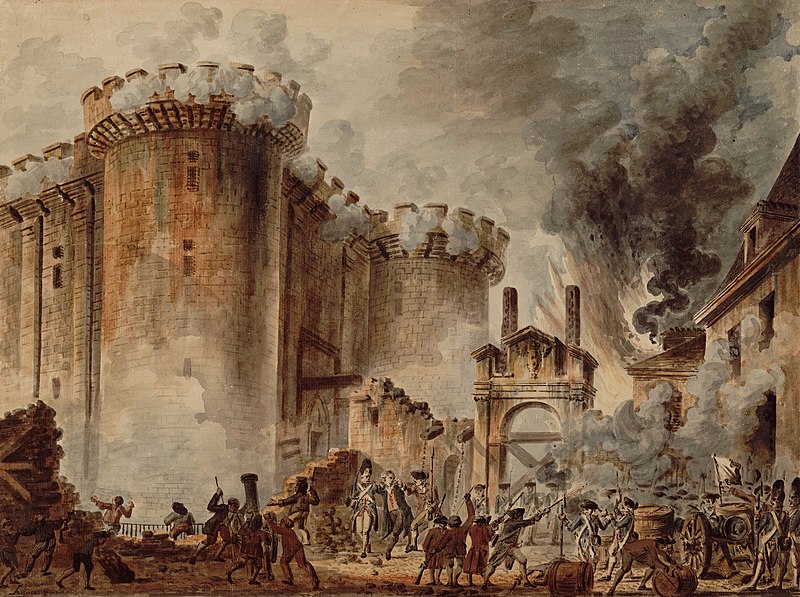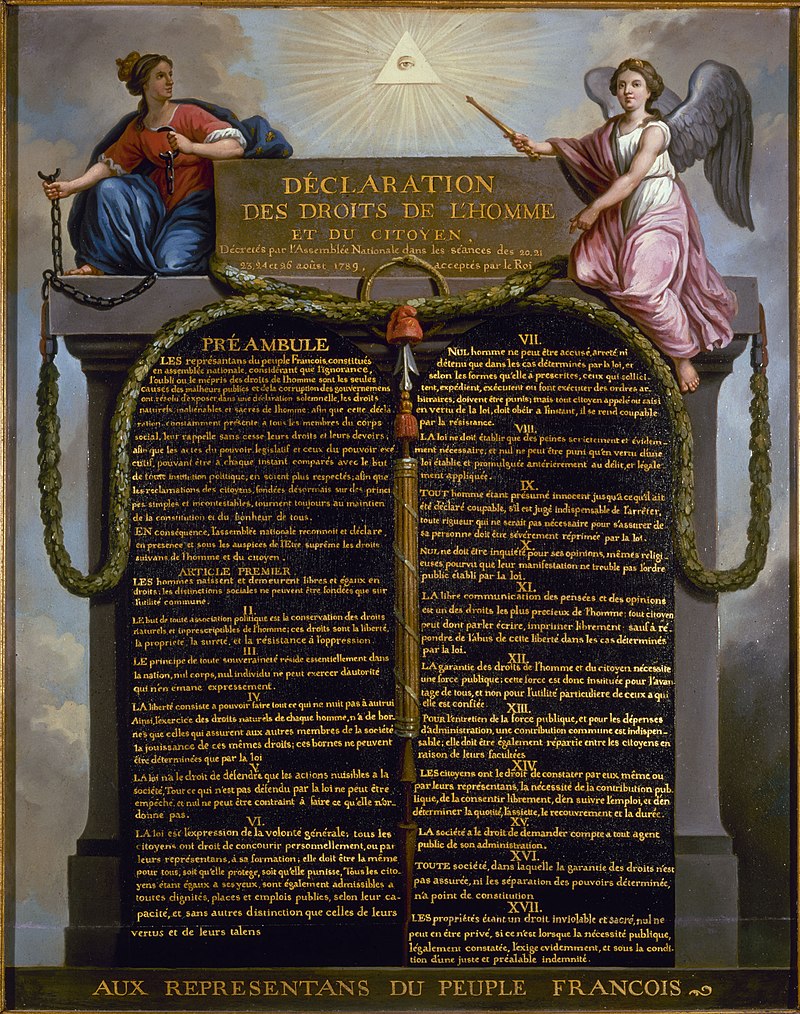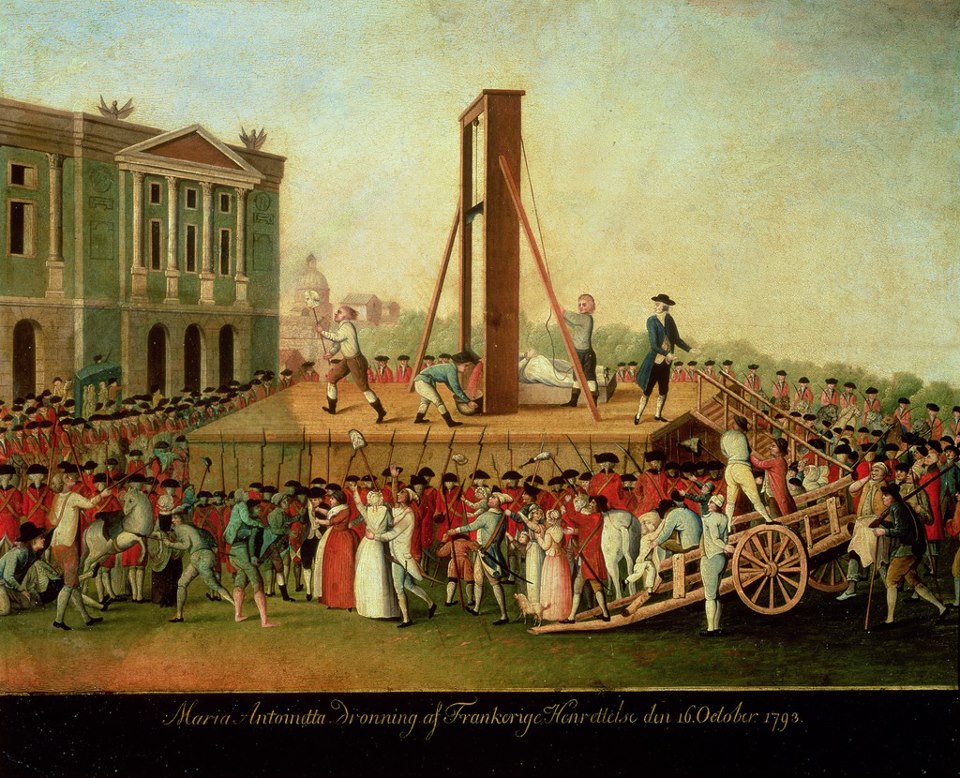_e.jpg)
IS IT TOO EARLY TO TALK ABOUT THE FRENCH REVOLUTION?
The libretto of Rossini's comic opera "The Barber of Seville" was taken from the 18th-century comedy writer Beaumarchais. In this, the servant Figaro challenges his master, asking, "Do you know of a master possessing the qualities required of a servant?"
This sentence was foreshadowing the impending revolution. Perhaps unknowingly, the author had already shaken both the monarchy and the aristocracy. At that time, the nobles probably laughed at these expressions without realizing that they were digging their own graves.

The Buried Truth
On July 14, 1789, the storming of the Bastille, which marked the beginning of the French Revolution, is now France's foremost national day. Two and a half centuries ago, a hungry, miserable, sick, and excited crowd, more like a mob of common people, easily stormed and destroyed the fortified Bastille Castle in Paris. This place symbolized tyranny and oppression.
Its dungeons were filled with a pitiable lot: chained, crippled, with trembling limbs, pale and bone-dry hands. Finally, these unfortunate souls would find the freedom and comfort they longed for.
From the castle's rather damp and poorly furnished rooms emerged seven quite plump individuals, their colors more vibrant than those who had held them captive, and they seemed content. They dispersed to various parts of the city with a calm and leisurely pace. Most likely, they were contemplating how they would fill their stomachs on the way.
The Great French Revolution begins with this tragicomic incident. If they had known, I wonder what people would think about the revolution? Perhaps that's why they destroyed the Bastille; they buried the truth along with it in history.

Propaganda
Was the cause of the revolution the suffering of the people in contrast to the government's indulgence and luxury? According to the republicans who dominate history, literature, art, politics, media, and everything today, yes.
This so-called suffering provided material for a systematic propaganda by a group opposed to the regime. It was stoked during the revolution in order to make it more palatable to the people and gradually became a widespread belief that misled historians.
French academician Théodore Gosselin Lenotre (1855-1935), who has numerous works on the revolution, in his book titled "La Vie à Paris pendant la Révolution" (Life in Paris during the Revolution), provides page after page of evidence and witnesses to prove that this prevailing belief is entirely wrong, baseless, and fabricated.
Listing documents such as books, memoirs and letters written by foreigners of various nationalities who visited France just before the revolution and stayed there for years, Lenotre convincingly narrates that the situation is completely opposite.
Foreigners depict the urban, rural, and peasant French people as living in a very prosperous and happy France. Even well-known English travelers in their travelogues state that the attire, lifestyle, food, cheerfulness, and standard of living of the French peasants were so high that they couldn't help but be amazed when comparing them to English peasants.
They admired the meals of the peasants and the variety of soups, game meats, roasted beef, dried and fresh fruits, and beverages served at their tables, noting that such abundance was not seen in England.

Act of Greed
The French Revolution still lives on in world politics as a vibrant and powerful revolution. The Italian, Bolshevik, Young Turk, National Socialist, and Fascist revolutions are all its offshoots. When the Declaration of Human Rights, which the revolutionaries issued, is read today, it may seem quite naive. However, there is no other text that has engaged world philosophy, ideology, economics, and politics as much as it has.
The revolution did not arise out of a love for liberty or a desire to save humanity. Above all, it was a struggle for power, an act of greed. The revolution erupted not from hunger but from the despairing propaganda of dissatisfied, ambitious individuals who had not fully digested the works they read, who could not rise to the high positions they coveted, and who wanted to swim in money.
A certain segment, especially official French history, has claimed that the revolution was a popular movement, concealing the role of the bourgeoisie class formed by the increasing French trade from the 18th century onwards.
Freemasonry, one of the oldest organized secret societies, and the bourgeoisie closely intertwined with it, were the forces behind the revolution. History bears witness to the fact that events termed "popular movements" often do not represent genuine grassroots actions; rather, global powers have always attempted to exert influence by manipulating the people.
The bourgeoisie class possessed economic power but appeared to have limited influence in political affairs. To overcome this, they found the aristocracy to be an obstacle and targeted it, along with all the values it stood for, such as monarchy, religion, tradition, and etiquette. They utilized the philosophical criticisms of thinkers like Voltaire, Diderot, d'Alembert, Montesquieu, Beaumarchais, and Rousseau to their advantage. The slogans of equality, liberty, and justice that they championed found favor with many.

Pardon, It Was Unintentional!
The reality behind the revolution was indeed very grim and frightening. Almost all its protagonists were tyrants. Those who carried out the revolution became increasingly brutal, establishing a regime of terror. Countless innocent people, nobles and peasants, uneducated and educated, priests and commoners, were guillotined without trial. Then the revolutionaries turned on each other. The revolution devoured its own children, and they too met their end at the guillotine.
In the annals of the revolution, kings and queens whose heads were severed and displayed to the public, scholars who drank poison from their rings, prostitutes who gained access to treasures, bandits who rose to the rank of marshal, beggars who became rich like Croesus, and heirs who died of starvation parade in a macabre procession.
Within this tragedy, one encounters unbelievable absurdities. The guillotine, after days of relentless use, had dulled its blade, but it still thirsted for blood and even beheaded its own operator, who had designed it to ensure that those executed did not suffer. King Louis XVI, as he was being executed, responded to the crowd shouting, "Let the blood flow over us and our children" with, "I implore God that the spilled blood may not fall upon France." The last words of the unfortunate Queen Marie Antoinette, as she accidentally stepped on her executioner's foot, saying, "Pardon, it was unintentional," stand as a symbol of the tragedy of the elegant and delicate aristocracy.
Neither America nor France...
The impact of the American Revolution has been widely discussed, but the French Revolution has remained a subject of controversy. The first took place in a new country without traditions, while the second occurred in the heart of Europe, in a country with a long history and a rich culture.
The revolution triumphed over the monarchy, the aristocracy, and the church. It caused a sensation worldwide and served as an example to those waiting in the wings. It was highly contagious. Similar tragedies were repeated in the Bolshevik and Young Turk revolutions.
It became evident that slogans like human rights, liberty, equality, and fraternity were mere empty words. However, in all of them, the revolution was idealized and mythologized in an attempt to erase or at least cover up the shameful acts committed.
But for centuries, one issue remained poorly understood: God and the sovereign could not be separated. The revolution turned the deeply rooted past, intertwined with faith and loyalty in the hearts and minds, into a blank slate. (Jean-Paul Roux, Le Roi: Mythes et Symboles)
Good or Bad?
Whether the French Revolution has been a benefit or a detriment to the world and humanity is a question that doesn't have a definitive answer. It's almost like a debate club-style question. It has been unquestioned for two centuries. It has been believed, without dispute, that it was good and propelled humanity forward by leaps and bounds.
When asked about his opinion on the French Revolution 50 years ago, the Chinese Foreign Minister said, "It's still too early to talk about it." The French Revolution continues to live on as a powerful and influential revolution in the world of thought and politics.
Reading about the French Revolution, one can find differing perspectives from historians like Albert Mathiez, a leftist, who describes it as the "great triumph of humanity," and Albert Sorel, a royalist, who sees it as the "dynamite laid at the foundation of humanity." Nowadays, modern historians have presented the revolution in its entirety without expressing a specific bias.
For those who write favorably about it, the revolution served the salvation and happiness of humanity. The leaders of the revolution are considered heroes and statesmen, and whatever the people did was seen as a positive contribution. Young people all around the world, especially the Young Turks, emulated them.
In France, within 15 years, things settled down. A Napoleon emerged, took the reins, cleared the negative effects of the revolution, made amends, and implemented a new legal system. He established a new France that had made peace with its past, whether good or bad. However, his imitators in the East destroyed everything.
Önceki Yazılar
-
RAMADAN WAS DIFFERENT IN THE ASR AL-SA‘ADAH…4.03.2026
-
“FASTING WAS MADE OBLIGATORY ALSO UPON THOSE BEFORE YOU”25.02.2026
-
WHAT WAS THE LAW OF THE OTTOMAN EMPIRE?18.02.2026
-
WOMAN IN THE EASTERN WORLD11.02.2026
-
THE OTTOMAN DYNASTY OWES ITS LIFE TO A WOMAN4.02.2026
-
THE WATER OF IMMORTALITY IN THE “LAND OF DARKNESS”28.01.2026
-
THE WORLD LEARNED WHAT FORBEARANCE IS FROM SULTAN MEHMED II21.01.2026
-
THE RUSH FOR GOLD14.01.2026
-
TRACES OF ISLAM IN CONSTANTINOPOLIS7.01.2026
-
WHO CAN FORGIVE THE KILLER?31.12.2025